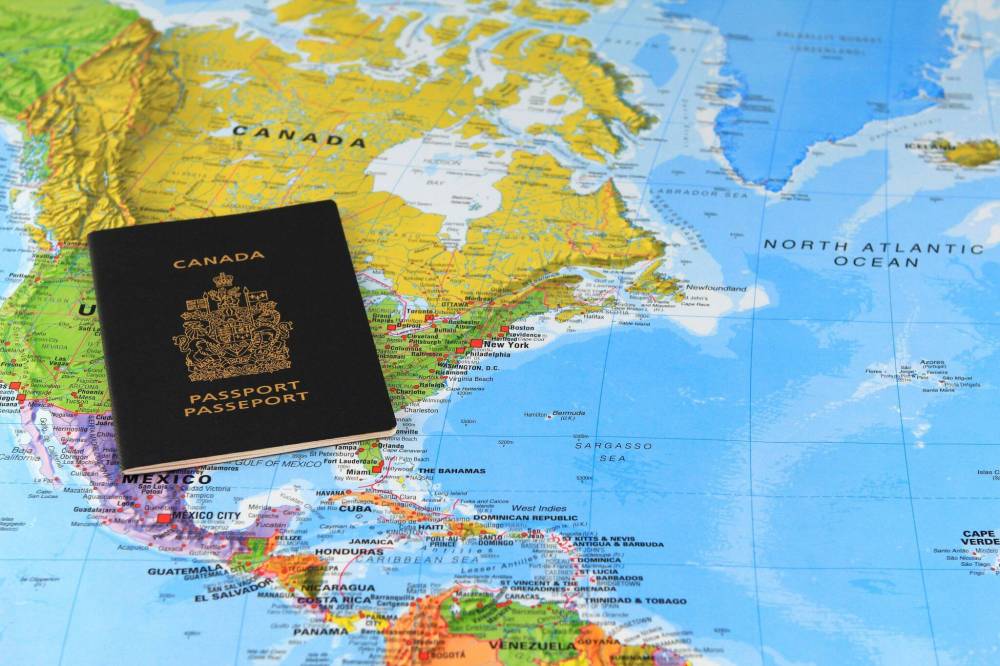U.S. citizens in Canada must file U.S. tax returns
Advertisement
Hey there, time traveller!
This article was published 08/05/2024 (540 days ago), so information in it may no longer be current.
Dear Money Lady,
My wife is one of those citizens of the U.S.A. who has lived in Canada as a permanent resident since 1968 and never filed a U.S. tax return. We were told that it wasn’t necessary if you didn’t earn income and weren’t living in the U.S. Also, we had no idea that our children, who are dual citizens through their mother, were also required to file taxes every year even though they have never lived or worked in the U.S.A. What do we do now?
Ken W.

Dreamstime
If the only reason some dual U.S./Canadian citizens keep their U.S. passports is travel, the Money Lady advises that they should think again.
I feel for you, Ken. This is a very difficult situation, one that I know a lot of dual Canadian/American citizens living in Canada may also be worried about. If you never plan to go back to the U.S. to live or work, if you have a home here in Canada, work in Canada, have investments, RSPs, TFSAs and kids in school, why are you keeping your U.S. citizenship? I know, it’s a lot easier to travel using your U.S. passports but keeping that passport just so it’s easier to travel to Florida or Arizona in the winter doesn’t make sense.
The U.S.A. is one of the few countries in the world that makes its citizens claim 100 per cent of their worldwide income (which is not the case in Canada). So, if you are a U.S. citizen who has RSPs/RIFs and TFSAs – they are not tax—exempted in the U.S. If you hold title to any properties in Canada, for example, a primary residence (which as a Canadian, would be tax exempt when you sell it) you will owe capital gains tax to the Internal Revenue Service (IRS).
So, if you have dual U.S./Canadian citizenship, make sure you file taxes in both countries. If you do not have a U.S. social security number, you will need to apply for one first and then file your returns. Make sure to transfer all ownership of any Canadian assets over to a non-U.S. resident (preferably your spouse). Speak to a U.S. taxation lawyer for assistance and, once you have settled with the IRS, consider renouncing your citizenship if you plan to stay in Canada.
Now, I’m not saying that all dual citizenships are bad. It’s totally fine with many other countries which don’t base their taxation on worldwide income. For example, if you were born in Australia, Germany, India, or the U.K., you can have dual citizenship and live and work here in Canada. You’re totally fine to keep both citizenship statuses and you’re not required to report your income or file a second tax return in those countries (only your country of residence). Filing two tax returns is unique to the U.S.A. Taxation in Canada is based on local and resident income.
So, what qualifies you as a resident of any country? Well, you have to spend more than 183 days a year in most countries to be considered a resident, and this brings up a unique opportunity for those who love to travel. There is a foreign earned income exclusion that applies to all countries which don’t use worldwide income (so, the U.S. is not included). Basically, if you keep moving, never spending more than 183 days a year in any one country, you never become a tax resident and are not subject to any tax reporting. This is a great option for perpetual travelers who might split their time between Europe, Canada, Asia or even South America.
There’s a little snag with this proposition if you find this appealing, and that is your citizenship with Canada. Countries will attempt to tax based on citizenship and especially if you’re using their health-care system. So, if you really want to be “free as a bird” then you must give up your Canadian citizenship and become a permanent resident of a country with a territorial tax system (for example: Panama). I use Panama as an example because it only taxes based on local income and that’s what you want. You can become a permanent resident of Panama with an investment of only $20,000 and you only have to spend a few days there every year.
Because you don’t make an income in Panama, you now have no tax hit, and you’ll be free to travel the world as a nomad, earning income in other countries, as an independent contractor, tax-free. Of course, you’ll have to get health-care coverage, but other than that, you’re set. This idea is not for the faint of heart, but it is certainly something to consider if you want to travel.

Christine Ibbotson
Ask the Money Lady
Christine Ibbotson is an author, finance writer and national radio host, now appearing on CTV News across Canada and BNN Bloomberg across Canada and the U.S.A. Send her your money questions through her website at askthemoneylady.ca
Our newsroom depends on a growing audience of readers to power our journalism. If you are not a paid reader, please consider becoming a subscriber.
Our newsroom depends on its audience of readers to power our journalism. Thank you for your support.




